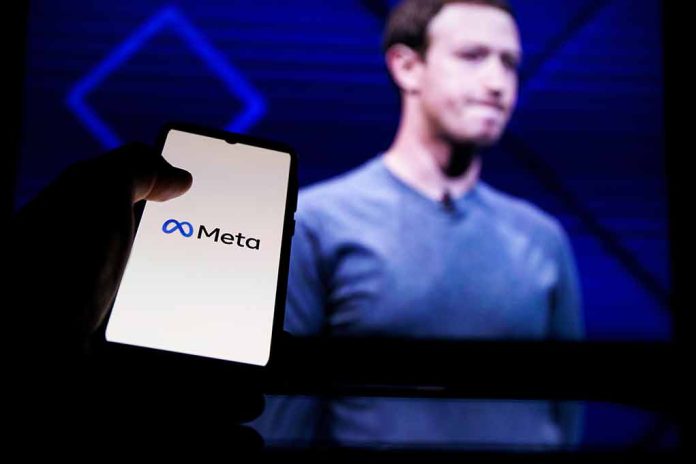
Mark Zuckerberg’s recent reforms at Meta raise questions about the balance between open discourse and social responsibility.
At a Glance
- Meta replaces stringent fact-checking with “Community Notes.”
- Efforts align with incoming U.S. President Donald Trump’s priorities.
- Critics fear withdrawal from traditional values of inclusivity.
- The debate highlights challenges in managing open dialogue vs. responsibility.
Sweeping Changes at Meta
Meta, under CEO Mark Zuckerberg, is implementing significant changes aimed at revamping its content moderation practices. Central to these changes is the introduction of “Community Notes,” replacing the company’s US fact-checking program. This move comes amidst criticism that previous fact-checking measures were politically biased, undermining trust in the platform. Zuckerberg expressed that “we’ve reached a point where it’s just too many mistakes and too much censorship.” These reforms aim to engage wider user perspectives and less regulatory oversight.
The decision marks a shift in Meta’s approach to content enforcement. High-severity violations will rely on automation, while the company will simplify the handling of politically sensitive issues. Controversy arose over ending proactive measures against potentially harmful content and instead depending on automated systems for major transgressions. The reforms include relocating trust and safety operations from California to Texas to address perceived biases.
Alignment with Political Interests
As Zuckerberg navigates this transformative period, he faces additional scrutiny regarding Meta’s alignment with political figures, notably upcoming President Donald Trump. The changes align with Trump’s priorities and come after his criticism of Meta for perceived liberal biases. Meta’s donation to Trump’s inaugural committee and appointments of Trump allies have further demonstrated efforts to mend ties with his administration.
“Fact checkers have just been too politically biased and have destroyed more trust than they’ve created, especially in the U.S.,” said Zuckerberg.
Critics argue these moves may undermine efforts to hold the platform accountable, particularly for disinformation related to significant issues like immigration and gun violence. The decision to replace fact-checkers with “Community Notes” is expected to shape how Meta handles contentious information, posing challenges in maintaining factual integrity without suppressing differing viewpoints.
Reaction and Consequences
The ending of diversity, equity, and inclusion (DEI) programs and altering how hate speech is addressed are part of the broader changes at Meta. The reforms have faced backlash from those fearing a retreat from the platform’s inclusive foundations. Observers have divided opinions, with some lauding the changes as steps towards reducing censorship, while others caution against potential increases in misinformation and harmful behavior.
As the reforms unfold, the future impact on Meta’s vast user base and its role in online discourse remains a central topic of discussion. Advocates for the changes see them as a means of restoring balance, while detractors worry about a backslide in accountability and truthfulness. The alterations in Meta’s policy will inevitably influence global dialogue on its platforms, presenting ongoing challenges in balancing free speech and social responsibility.





